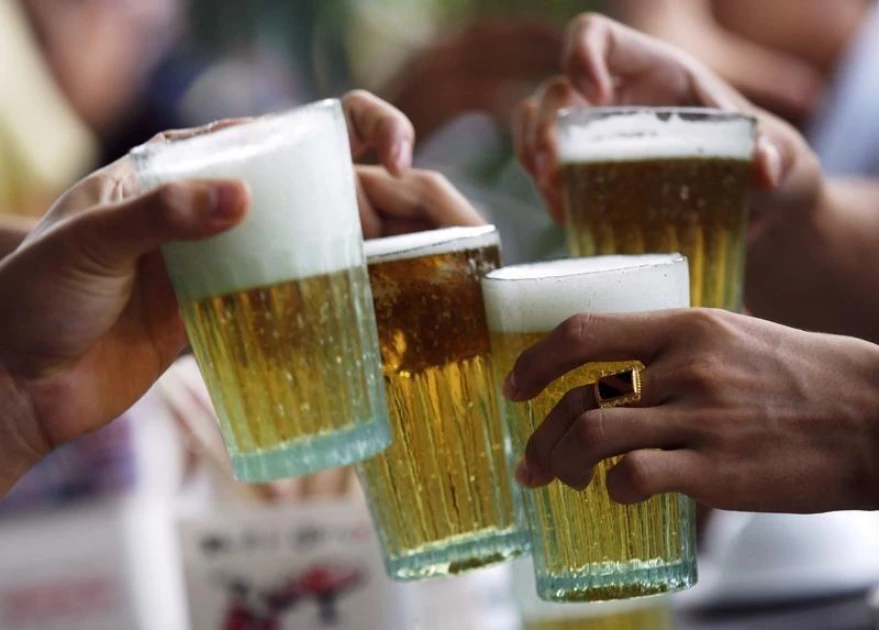The National Authority for the Campaign Against Alcohol and Drug Abuse (NACADA) wants the government to ban online sale of alcohol, alcohol discount promotions and the use of social media influencers, celebrities, and sports personalities in alcohol advertising.
This is part of sweeping new measures outlined in a national policy to combat alcohol, drug, and substance abuse released on Wednesday by the Ministry of Interior, targeting aggressive marketing strategies which the authority says normalise alcohol use.
The proposed regulations outlaw price promotions such as discounts, free samples, flat-rate offers, as well as volume sales, common in bars, supermarkets, and online retailers.
The policy seeks to prohibit the use of public figures, including musicians, actors, athletes, social media influencers, and media personalities, to endorse or promote alcohol.
“Any person used in advertising or endorsing alcoholic drinks shall be above 25 years, and further, there shall be no lifestyle advertising through any form of advertisement or promotion,” the proposal adds.
At the same time, it bans alcohol advertising, sponsorship, and marketing targeting people under the age of 21 and youth-related events, including those held in schools, universities, and at sports, arts, or entertainment competitions.
Outdoor advertising would be subject to new regulations on content and location, with bans imposed on ads within 300 metres of learning institutions, in residential areas, hospitals, and on government-owned properties.
All forms of alcohol marketing within schools and educational settings would be prohibited.
The policy further bans advertising via audio-visual platforms during watershed hours (5:00 a.m. to 10:00 p.m.), including foreign broadcasts and online advertising altogether.
If passed, alcohol promotions involving free samples, discounts, or prize-based competitions will be outlawed.
Adverts would be required to provide only “factual” information, without what NACADA calls glorifying alcohol.
“Any advertisement of alcoholic products shall be expected to give factual information, not emphasize the strength or merit of alcohol, not negatively cast abstinence from alcohol consumption, and shall not depict alcohol consumption as a lifestyle,” the proposals state.
Additionally, films, music, and performances that depict alcohol or substance use positively would not be allowed in print or electronic media.
NACADA says this is to protect children, youth, and the public from “excessive, misleading, or deceptive inducements of alcohol advertising, promotion, and marketing.”
RESTRICTED ACCESS
Similarly, the new policy raises the legal age for purchasing, selling, or consuming alcohol from 18 to 21 years, and introduces strict restrictions on where alcohol can be sold and consumed.
“There shall be no person below the age of twenty-one (21) allowed to access or enter any alcohol selling outlets, whether alone or accompanied,” the policy says.
Online sales, home deliveries, hawking, and vending machines would be banned, as would alcohol sales in supermarkets, petrol stations, restaurants, residential areas, and near educational institutions.
Consumption of alcohol would also be prohibited in restaurants, hotels, public transport, parks, and other public spaces.
Anyone accompanied by a child or armed with offensive weapons will also not be allowed to purchase alcohol.
Similarly, all alcoholic products face stricter packaging and labelling requirements, including clear health warnings and ingredient lists.
The policy would also set a minimum packaging size of 250 ml to curb the proliferation of cheap, high-alcohol-content sachets and small bottles.
Licensing rules would be overhauled to restrict the number and proximity of outlets to schools and residential areas, and only the national government would handle the licensing of alcohol manufacturing and import/export.
To improve road safety, the policy proposes lower blood alcohol limits for “young” and professional drivers, mandatory breath testing, license suspensions, and compulsory counselling or treatment for offenders.




